1 / 6
Smetana’s Litomyšl National Festival • Stabat Mater
Dvořák's spiritual cantata Stabat Mater will be performed by the Czech Philharmonic together with the Prague Philharmonic Choir, the oldest and most important mixed choir in the Czech Republic. The singing stars - Simona Šaturová, Václava Krejčí Housková, Richard Samek and Jozef Benci - will perform.
Programme
Antonín Dvořák
Stabat Mater, sacred cantata for soli, choir and orchestra, Op. 58
Performers
Simona Šaturová soprano
Václava Krejčí Housková mezzosoprano
Richard Samek tenor
Jozef Benci bass
Lukáš Vasilek choirmaster
Prague Philharmonic Choir
Tomáš Netopil conductor
Czech Philharmonic

The sale of individual tickets for subscription concerts (orchestral, chamber, educational) will begin on 2 June 2025 at 10 a.m.
Individual tickets for all public dress rehearsals will go on sale on 10 September 2025 at 10 a.m.
Customer Service of Czech Philharmonic
Tel.: +420 227 059 227
E-mail: info@czechphilharmonic.cz
Customer service is available on weekdays from 9.00 am to 6.00 pm.
Performers
Simona Šaturová soprano
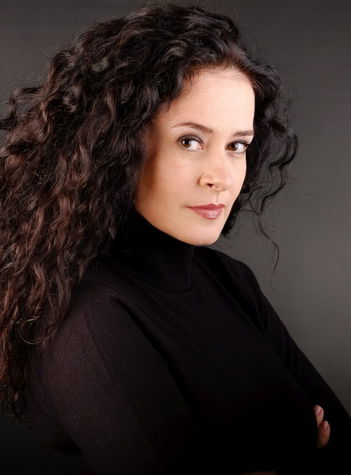
Simona Houda-Šaturová is a sought-after performer of Mozart (“She sings Konstanze with such amazing coloraturas, deeply felt pianos and stylistic perfection that take the breath away,” Der neue Merker) and bel canto roles, as well as an internationally renowned concert artist. The highlights of recent years include her performances with the Wiener and Münchner Philharmonikers, the Tokyo and Boston Symphony Orchestras, the Lucerne Festival Orchestra, and a tour with the Bamberger Symphoniker, conducted by Jakub Hrůša. She has also sung in productions of the Mozart–Da Ponte trilogy at the Théâtre Royal de la Monnaie in Brussels, portraying Donna Anna (Don Giovanni) and debuting as Countess Almaviva (Le nozze di Figaro).
Her extensive discography includes recordings for Supraphon, Sony BMG and other labels. She lent her voice to the actress performing the prima donna Caterina Gabrielli in the film Il Boemo.
Simona Houda-Šaturová studied at the Bratislava Conservatory, and further honed her skills with Ileana Cotrubas and Margreet Honig. She has received the Charlotte and Walter Hamel-Stiftung Preis, the Czech Thalia Prize and other coveted accolades.
Václava Krejčí Housková alto, mezzo-soprano
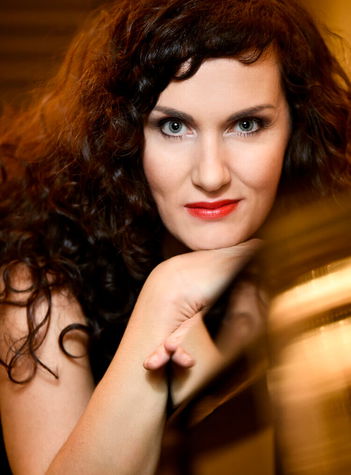
The mezzo-soprano Václava Krejčí Housková studied at the České Budějovice Conservatory (with Dagmar Volfová) and the Academy of Performing Arts in Prague (with Jiřina Přívratská) and attended masterclasses under the tutelage of Margaret Honig. In 2010, she was engaged at the Moravian Theatre in Olomouc, in 2014, she made her debut at the National Theatre in Prague, and since 2015 she has been a soloist of the National Theatre in Brno. She has received two nominations for the coveted Czech Thalia Prize for her portrayals of the roles of Smeton (Anna Bolena, National Moravian-Silesian Theatre in Ostrava, 2014) and Carmen (J. K. Tyl Theatre in Pilsen, 2020). Her recording of Leoš Janáček’s Diary of One Who Disappeared with the tenor Nicky Spence and the pianist Julius Drake earned the prestigious BBC Music Magazine Award and Gramophone Classical Music Award. Václava Krejčí Housková has worked with renowned orchestras and has performed at major international events (Edinburgh International Festival, Prague Spring, Smetana Litomyšl, Prague Proms etc.).
Richard Samek tenor
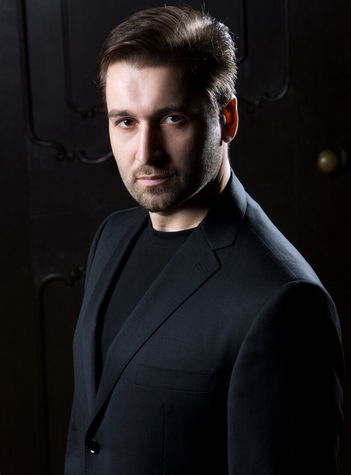
Prague audiences have primarily heard and seen the tenor Richard Samek at the National Theatre, where he has portrayed the Prince (Rusalka), Don Ottavio (Don Giovanni), Tamino (Die Zauberflöte) and Alfredo (La traviata). He has also dazzled in Classical and Romantic roles (as well as the 20th-century repertoire) in Plzeň, Brno and Ostrava, as well as abroad, including in Germany (four years ago, he appeared at the prestigious Semperoper) and France.
His performances are captured on recordings of Johann Strauss’s operettas, and operas by Bedřich Smetana (with the BBC Symphony Orchestra, conducted by Jiří Bělohlávek) and Zdeněk Fibich. His discography includes an acclaimed recording of Gustav Mahler’s Das Lied von der Erde, made with the mezzo-soprano Dagmar Pecková.
Moreover, Richard Samek is a sought-after concert soloist, frequently performing with the Czech and Brno Philharmonics (appearing at major Czech festivals too). He has also closely collaborated with the Orchestra dell’Academia Nazionale di Santa Cecilia, with whom in the current season he will give a concert of Antonín Dvořák’s cantata The Spectre’s Bride.
Jozef Benci bass
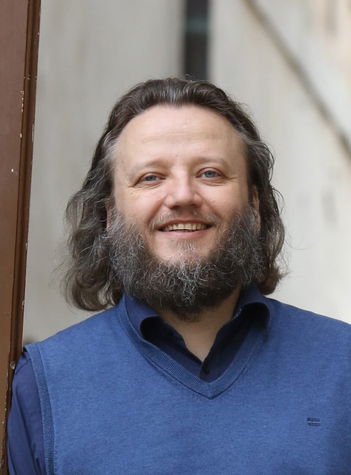
Jozef Benci is a distinguished opera and oratorio performer. A graduate of the Academy of Performing Arts in Bratislava and the Janáček Academy of Music and Performing Arts in Brno, he is a soloist of the Slovak National Theatre and Prague’s National Theatre, and has frequently been invited to appear with the Czech and Slovak Philharmonics. Milestones in his career include victory at the prestigious George Enescu International Competition in Bucharest (2001) and an acclaimed performance of a concert version of Bedřich Smetana’s opera The Bartered Bride (the role of Kecal) with the BBC Symphony Orchestra, conducted by Jiří Bělohlávek, at the Barbican Centre in London, a recording of which advanced to the final of the Grammy Awards, as well as collaboration with the celebrated soprano Edita Gruberová.
Besides being an accomplished performer of Classical and Romantic opera roles, he is a sought-after concert soloist. His repertoire includes Janáček (Glagolitic Mass, which he recorded with the Prague Radio Symphony Orchestra and Tomáš Netopil), Verdi (performances with the conductor Nello Santi) and Dvořák (this July, he sang in his Stabat Mater opposite the Czech Philharmonic; and at this year’s Dvořák Prague festival he dazzled in his Te Deum).
Lukáš Vasilek choirmaster
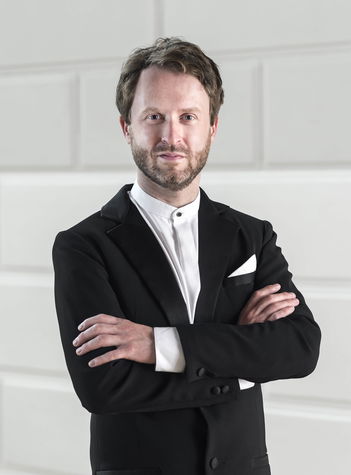
Lukáš Vasilek studied conducting and musicology. Since 2007, he has been the chief choirmaster of the Prague Philharmonic Choir (PPC). Most of his artistic work with the choir consists of rehearsing and performing the a cappella repertoire and preparing the choir to perform in large-scale cantatas, oratorios, and operatic projects, during which he collaborates with world-famous conductors and orchestras (such as the Berlin Philharmonic, the Czech Philharmonic, the Israel Philharmonic, and the Saint Petersburg Philharmonic).
Besides leading the PPC, he also engages in other artistic activities, especially in collaboration with the vocal ensemble Martinů Voices, which he founded in 2010. As a conductor or choirmaster, his name appears on a large number of recordings that the PPC have made for important international labels (Decca Classics, Supraphon); in recent years, he has been devoting himself systematically to the recording of Bohuslav Martinů’s choral music. His recordings have received extraordinary acclaim abroad and have earned honours including awards from the prestigious journals Gramophone, BBC Music Magazine, and Diapason.
Prague Philharmonic Choir
The Prague Philharmonic Choir (PPC), founded in 1935 by the choirmaster Jan Kühn, is the oldest professional mixed choir in the Czech Republic. Their current choirmaster and artistic director is Lukáš Vasilek, and the second choirmaster is Lukáš Kozubík.
The choir has earned the highest acclaim in the oratorio and cantata repertoire, performing with the world’s most famous orchestras. In this country, they collaborate regularly with the Czech Philharmonic and the Prague Philharmonia. They also perform opera as the choir-in-residence of the opera festival in Bregenz, Austria.
Programmes focusing mainly on difficult, lesser-known works of the choral repertoire. For voice students, they are organising the Academy of Choral Singing, and for young children there is a cycle of educational concerts.
The choir has been honoured with the 2018 Classic Prague Award and the 2022 Antonín Dvořák Prize.
Tomáš Netopil conductor
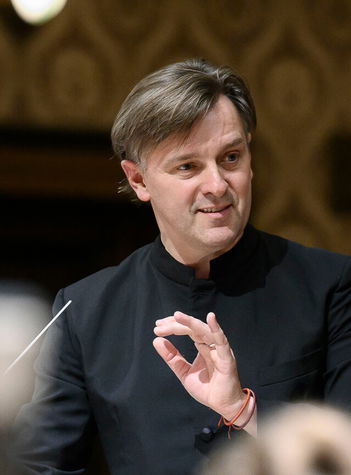
An inspirational force, particularly in Czech music, Tomáš Netopil was Principal Guest Conductor with Czech Philharmonic from 2018-2024 performing regularly on tour and at concerts in the Rudolfinum Hall in Prague where he continues to conduct the orchestra’s New Year concerts which are live televised. In 2023/2024 season, Tomáš Netopil conducted opera productions including Janáček’s Jenůfa at the Hamburg Staatsoper and Dvořák’s Rusalka at the Prague National Theatre as well as symphonies with Frankfurt Opera Orchestra, Janáček Philharmonic Ostrava, Naples Philharmonic and Fort Worth Symphony Orchestra.
Opera productions in the 2024/2025 season include Mozart’s La Clemenza di Tito at the Grand Théâtre de Genève, Die Zauberflote with the New National Theatre Foundation, Tokyo and Don Giovanni with Oper Köln. Netopil explores a wide range of symphonic repertoire in engagements with Oslo Philharmonic, Antwerp, Kuopio and Sydney Symphony Orchestras, Hong Kong Sinfonietta and Accademia Nazionale di Santa Cecilia. This season sees a welcome return to L'Orchestre Philharmonique de Monte-Carlo as well as a debut with Orchestre National des Pays de la Loire. Another return is to Concentus Musicus Wien which builds on his work with period ensembles. As part of the Prague Spring Festival, Netopil will delight audiences with an authentic production of Mozart’s Requiem.
Seven years ago, Tomáš Netopil created the International Summer Music Academy in Kroměříž offering students both exceptional artistic tuition and the opportunity to meet and work with major international musicians. In summer 2021, in association with the Dvořák Prague Festival, the Academy established the Dvořákova Praha Youth Philharmonic with musicians from conservatories and music academies, coached by principal players of the Czech Philharmonic. Tomáš Netopil has held a close relationship with the Dvořák Prague Festival for some time and was Artist-in-Residence in 2017, opening the Festival with Essen Philharmoniker and closing the Festival with Wiener Symphoniker in Dvořák’s Te Deum.
Tomáš Netopil’s discography for Supraphon includes Janáček’s Glagolitic Mass (the first ever recording of the original 1927 version), Dvořák’s complete cello works, Martinů’s Ariane and Double Concerto, and Smetana’s Má vlast with the Prague Symphony Orchestra with whom he’ll become Chief Conductor and Music Director from 2025/2026 season. During his tenure in Essen, his releases included recordings of Suk Asrael and Mahler Symphony Nos. 2, 3 6 and 9.
From 2008-2012 Tomáš Netopil held the position of Music Director of the Prague National Theatre. He studied violin and conducting in his native Czech Republic, as well as at the Royal College of Music in Stockholm under the guidance of Professor Jorma Panula. In 2002 he won the 1st Sir Georg Solti Conductors Competition at the Alte Oper Frankfurt.
Compositions
Antonín Dvořák
Stabat Mater op. 58
V únoru 1876 rozvrhl Antonín Dvořák kompozici Stabat mater na text středověké sekvence, jímavého obrazu truchlící Panny Marie pod křížem. Autorství latinské předlohy se připisovalo františkánskému mnichu Jacoponu da Todi (?1230–1306), dnešní mínění medievalistů o původci sekvence však není jednotné. Za impuls k Dvořákovu zhudebnění bývá považováno úmrtí jeho dvoudenní dcerky Josefy v srpnu 1875, časový odstup od této události k započetí práce je ovšem příliš velký. Spíše sehrála roli Dvořákova varhanická funkce v kostele sv. Vojtěcha, při níž přišel do styku s duchovními skladbami starší doby i současníků a pocítil potřebu přispět k tomuto oboru vlastním dílem. Na konečné vypracování skladby, která po první pracovní fázi zůstala ležet, však měla rozhodně vliv tragédie Dvořákových v létě 1877, kdy jim během dvou měsíců zemřely další dvě děti.
Kantáta Stabat mater byla dokončena v listopadu 1877. Dvořák rozdělil text do deseti oddílů, na nichž se podílejí čtyři sólové hlasy jako ansámbly či (s výjimkou sopránu) v samostatných úsecích, dále sbor a orchestr doplněný o varhany. Žal nad ztrátou dítěte a lidským utrpením se v Dvořákově skladbě proměňuje ve smíření a víru. Východiskem pojetí byla díla hudebního baroku, nejedná se zde však o monumentální fresku, kompozice je prodchnuta prostým citem hluboce věřícího člověka. Atmosféru navozuje instrumentální úvod s chromatickými lkavými tóny, z pianissima nastupují první slova sboru, kvartet druhého čísla vyjadřuje soucit s žalující matkou, následuje smuteční pochod, krásné propojení basového sóla se sborem; osobitým způsobem zpracovává Dvořák všechny strofy, každý úsek až po závěrečnou fugu má uzavřenou formu a výpověď.
První provedení tohoto díla se uskutečnilo v rámci cyklu tzv. „Concert spirituel“ 23. prosince 1880 na Žofíně. Pořadatelem byla Jednota hudebních umělců, roku 1803 založený česko-německý penzijní spolek, který uváděl dvakrát ročně velká vokálně-instrumentální díla. Na provedení se podílel spojený sbor a orchestr českého Prozatímního i německého Stavovského divadla, chovanci operní školy Jana Ludevíta Lukese, žáci konzervatoře a další účinkující. Řídil Adolf Čech, sólisty byli Eleonora z Ehrenbergů, Betty Fibichová, Antonín Vávra a Karel Čech. Kritik Národních listůpři té příležitosti zauvažoval o Dvořákově tvůrčí mentalitě a vyslovil téměř proroctví: „Včera provedeno bylo v koncertní síni Žofínského ostrova velké dílo předního skladatele našeho Stabat mater od Antonína Dvořáka, nejzralejší a bez odporu nejznamenitější ze všech jeho prací vokálních. Jest to úkaz pozoruhodný, že Dvořák, tento instrumentální skladatel ve vlastním slova smyslu, poprvé sobě proklestil cestu k srdci a mysli obecenstva prací vokální: velkolepě stavěným hymnem na slova z Hálkových Dědiců Bílé hory, potom teprve přišly práce symfonické a skladby komorní; do ciziny též poprvé vnikl vítězně skladbou vokální, rozkošnými Moravskými dvojzpěvy. [...] Tento úkaz nezdá se mi býti pouhou náhodou, nýbrž spíše zjevem, spočívajícím v nejhlubším jádru umělecké povahy této obdivuhodné síly tvůrčí, i možno dle všeho předvídati, že Dvořák, vládnoucí tou dobou suverénně formami instrumentálními, sáhne hlouběji šťastnou rukou v nezměrné bohatství svého umění a vynese na povrch příští dobou ryzí zlato nových, krásnějších forem vokální hudby, spojení poetického slova s tvarem hudebním, ku kterémuž vznešenému cíli veškero moderní umění spěje. Krásné spojení živlů z říše básnictví a hudby ve formě zpěvohry, ať světské či duchovní (forma moderního oratoria), jest přec jen pro vynikajícího skladatele naší doby nejvyšším vrcholem umění.“
Recenzent se rovněž vyslovil k problému duchovní tvorby v nové době: „Moderní hudba má po ruce jiný výraz pro hluboká slova Stabat mater než hudba dob minulých a Dvořák podal vše samostatně, originelně; mnoho bude vytýkáno z různých stran novým těm tvarům hudebním, však v jednom zajisté všichni hlasové budou souhlasiti: že jest to výraz ducha neobyčejného, velkého. Slyším již, jak jedni říkají, že sloh ten jest málo duchovní, či církevní, druzí, že tam převládá výraz zpěvoherní atd. O věci té dá se vésti hádka s tím větším úspěchem, že méně dosud jest objasněno, v čem vlastně onen sloh ryze církevní vězí! Či by to snad měl býti sloh ‚a capella‘? Bůh zachraň; neboť pak by nebyl v oboru tom pokrok vůbec možným.“ (značka -ý, Národní listy, 24. 12. 1880).
Podobnou úvahu připojil k pozitivnímu posudku novinky také kritik německého listu: „Jednota hudebních umělců se v posledních letech snažila dodat svým duchovním koncertům zvláštní dráždivost přijetím zde ještě neslyšených hudebních děl. Po zdařilých produkcích Brahmsova Německého rekviem, Bachových pašijí a Vánočního oratoria jsme ve čtvrtek slyšeli nové dílo domácího, nyní již v celém hudebním světě proslulého skladatele, Stabat mater Antonína Dvořáka. [...] Lze diskutovat o tom, zda je daný text vhodný pro téměř dvouhodinovou skladbu vybavenou všemi prostředky moderního orchestru; tím větší zásluha musí být přiznána Dvořákovi, že nedochází k pocitu monotónnosti a bez ohledu na jednotvárnou náladu posluchačova pozornost neochabne. [...] Celek podává nové, skvělé svědectví o bohatství Dvořákovy hudební fantazie, jeho zručnosti v pojednání velkých forem a v instrumentaci.“ (značka K., Prager Tagblatt, 27. 12. 1880)
Za hranicemi Čech bylo Stabat mater uvedeno poprvé roku 1882 v Budapešti a 10. března 1883 následovalo provedení v Londýně v St. Jamesʼ Hall pod taktovkou Josepha Barnbyho. Dvořákovo jméno už bylo v Anglii známé, uvedení Stabat mater však znamenalo triumf, po němž následovaly objednávky na další vokálně-instrumentální díla.
Dvořákovo Stabat mater bylo často uváděno po celé vlasti v rámci slavnostních příležitostí. Tak například při slavnostním koncertu v rámci Sjezdu českoslovanského pěvectva 17. května 1891, kdy se na jeho provedení v Národním divadle v Praze podílelo na sedm set zpěváků, nebo na koncertě pořádaném Jednotou hudebních umělců 2. dubna 1903, kdy bylo provedeno za spoluúčasti pražského Hlaholu a České filharmonie s dirigentem Karlem Doušou.